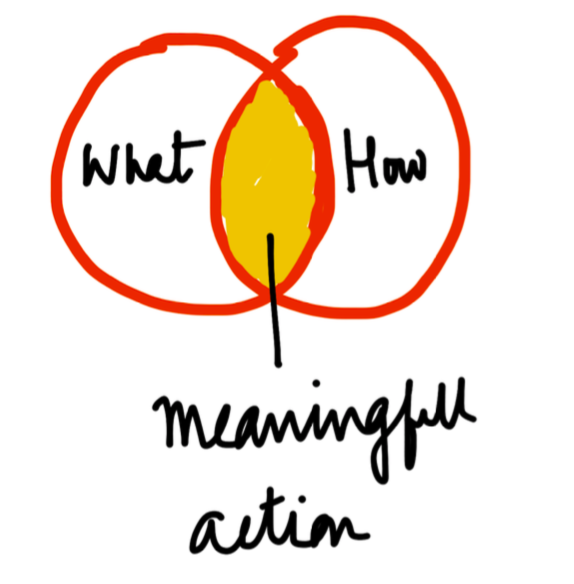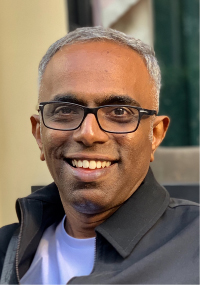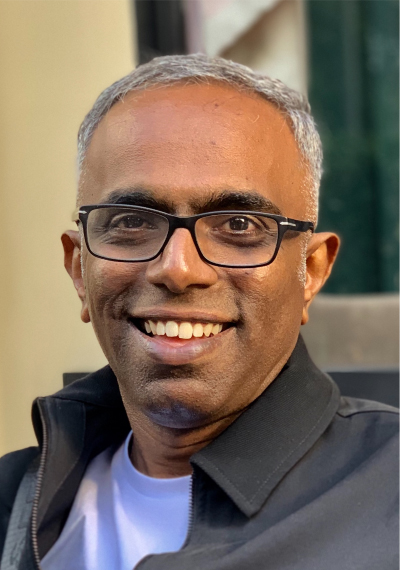We are five weeks into the new financial year. The year is still young and plans are afoot to make this year count. Here are some field notes from numerous interactions with people on the ground. It appears simple, but it is where I find people trip. I call this one Success Musings for I have made a success formula of sorts from Murakami‘s words. It is rather simple. But it works!
Success = Talent X Focus X Endurance.
Most of us falter and miss reaching the heights excellence in our chosen domains not for want of talent. The hurdle that trips us is ‘focus’. Or the lack of it. The modern day world tempts us with so many options. We pick up the phone more often than we realise. Often, for no legitimate reason at all. We have so many inviting options and distractions that can take us farther away from what we have to focus on and do. You can read Nicholas Carr‘s The Shallows and Cal Newport‘s Deep Work.
Less is more! The lesser we have on our plates, the more we are able to pay attention to what’s on them. Keeping everything that distracts from the core subject, out of the frame, adds so much more to what’s in the frame. That lesson from photography 101, is much treasured.
The second aspect of endurance requires us to stay with it for long periods of time. That involves toiling away when no one is looking with nothing possibly to show for all the toil. That is a lot of boring work with the mind screaming for easier options that beckon. Those who run long distances are familiar with these statements that pop up in the mind: “Why? Why am I doing this? I would rather be relaxing on a Sunday morning than sweating it out like this”! Well, success lies beyond such thoughts and after we wade through these. Endurance often is a mind game.
Here is Murakami. Excerpts from Chapter Four. From “What I Talk About When I Talk About Running: A Memoir“.
In every interview, I’m asked what’s the most important quality a novelist has to have. It’s pretty obvious: talent. No matter how much enthusiasm and effort you put into writing if you totally lack literary talent you can forget about being a novelist. This is more of a prerequisite than a necessary quality. If you don’t have any fuel, even the best car won’t run. The problem with talent, though, is that in most cases the person involved can’t control its amount or quality. You might find the amount isn’t enough and you want to increase it, or you might try to be frugal and make it last longer, but in neither case do things work out that easily. Talent has a mind of its own and wells up when it wants to, and once it dries up, that’s it. Of course, certain poets and rock singers whose genius went out in a blaze of glory—people like Schubert and Mozart, whose dramatic early deaths turned them into legends—have a certain appeal, but for the vast majority of us, this isn’t the model we follow.
If I’m asked what the next most important quality is for a novelist, that’s easy too: focus—the ability to concentrate all your limited talents on whatever’s critical at the moment. Without that, you can’t accomplish anything of value, while, if you can focus effectively, you’ll be able to compensate for an erratic talent or even a shortage of it. I generally concentrate on work for three or four hours every morning. I sit at my desk and focus totally on what I’m writing. I don’t see anything else, I don’t think about anything else. Even a novelist who has a lot of talent and a mind full of great new ideas probably can’t write a thing if, for instance, he’s suffering a lot of pain from a cavity. The pain blocks concentration. That what I mean when I say that without focus you cant accomplish anything.
…
After focus, the next most important thing for a novelist is, hands down, endurance. If you concentrate on writing three or four hours a day and feel tired after a week of this, you’re not going to be able to write a long work. What’s needed for a writer of fiction—at least one who hopes to write a novel—is the energy to focus every day for half a year, or a year, two years.
…
Fortunately, these two disciplines—focus and endurance—are different from talent, since they can be acquired and sharpened through training. You’ll naturally learn both concentration and endurance when you sit down every day at your desk and train yourself to focus on one point. This is a lot like the training of muscles I wrote of a moment ago. You have to continually transmit the object of your focus to your entire body, and make sure it thoroughly assimilates the information necessary for you to write every single day and concentrate on the work at hand. And gradually you’ll expand the limits of what you’re able to do. Almost imperceptibly you’ll make the bar rise. This involves the same process as jogging every day to strengthen your muscles and develop a runner’s physique. Add a stimulus and keep it up. And repeat. Patience is a must in this process, but I guarantee the results will come.
In private correspondence the great mystery writer Raymond Chandler once confessed that even if he didn’t write anything, he made sure he sat down at his desk every single day and concentrated. I understand the purpose behind his doing this. This is the way Chandler gave himself the physical stamina a professional writer needs, quietly strengthening his willpower. This sort of daily training was indispensable to him.
…
Most of what I know about writing I’ve learned through running every day. These are practical, physical lessons. How much can I push myself? How much rest is appropriate—and how much is too much? How far can I take something and still keep it decent and consistent? When does it become narrow-minded and inflexible? How much should I be aware of the world outside, and how much should I focus on my inner world? To what extent should I be confident in my abilities, and when should I start doubting myself? I know that if I hadn’t become a long-distance runner when I became a novelist, my work would have been vastly different. How different? Hard to say. But something would definitely have been different
.…
Most runners run not because they want to live longer, but because they want to live life to the fullest. If you’re going to while away the years, it’s far better to live them with clear goals and fully alive than in a fog, and I believe running helps you do that. Exerting yourself to the fullest within your individual limits: that’s the essence of running and a metaphor for life and for me, for writing as well.
Murakami has been a personal favourite. I have poured over these lines and couldn’t resist sharing them here. Running as a metaphor for life has held strong for me. Before we go forward, may I turn around and ask you, what’s your metaphor for life? That’s one place where your own success formula can emerge!
So, where do we start?
The two circles
For starters, writing down goals helps. Broad long term goals are good to write down. They serve as a reference point to what you want to do. A year is a good timeline to have. Arriving at what these could be tricky. It is best done in conversation with someone we trust. A good friend who refrains from advice but helps evolve a choice set, options and leave the deciding to us is great to have. An executive coach helps with just that.
“In the absence of clearly-defined goals, we become strangely loyal to performing daily trivia until ultimately we become enslaved by it.”
Robert A. Heinlein
Once the “what” is sorted, going about getting it is where focus and determination help. Every time we stretch a muscle, it hurts. But it is in the stretch, pain and challenge that learning and growth happens. It is about faltering, picking oneself up and continuing to work on.
There are people who falter on the ‘What’. That is, people who miss out on evolving choices about what they should be working on. They find themselves bored at work and devoid of purpose.

And there are people who falter at the ‘How’. These are people who have evolved a few things for themselves. But then, it is in focus and endurance that the faultlines show. That requires a different working altogether.
So where do you start?
Getting the ‘what’ out of the way is always a good start. “What all do I want to really do?”, is a tough question to answer! A good conversation that will help clarify options and choices sets it up nicely.
Pro tip: Please make a point to write it down. It helps! Just having it written down somewhere is a start that can give you momentum action. That is a good start to evolving your own success formula!
Image Credit : Pixabay















